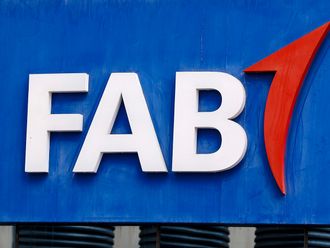In the coming week, markets will focus on: 1) the Greek fiscal issues 2) increasing worries about the prospect of China overheating; and 3) the US banks sector proposals.
US President Barack Obama's plan to strip banks of some of their clout is keeping investors on their toes. It adds another cloud of uncertainty to markets already struggling with rising sovereign debt risk, a disappointing Wall Street earnings season and macroeconomic headwinds ranging from rising inflation to stubborn unemployment.
The US dollar forged ahead to five months highs last week against the euro, a month high against its Canadian counterpart and multi-week highs against both the Australian and New Zealand dollar. With China announcing its intentions to cool its economy and markets, and US President Obama proposing a limit on the size and risk-taking activity of the nation's largest banks, the world's largest governments are taking an active role in slowing speculative positioning.
Euro
The euro declined at the start of the week against the dollar on speculation Greece's struggle to contain its budget deficit will deter investors from buying the region's assets. The Greenback also posted gains across the board as the euro extended its decline. The European currency fell to its lowest level in five months against sterling, after triggering stop losses, and after Kraft Foods agreed to buy British chocolate-maker Cadbury Plc, increasing demand for pounds. The euro's slide below its 200-day moving average of around $1.4296 initially gave investors a technical sign to sell the currency.
In the coming weeks, the pair is likely to respond sharply to not only European and US economic indicators, but also any news relating to the financial sector.
Range for previous week: $1.4025 - $1.4415 (Dh5.1513 - Dh5.2946)
Range for this week: $1.3980 - $1.4220
Sterling
Sterling started the week on a firm note, having gained on firmer UK housing data and as speculative players chased it higher on reports that French utility GDF was in talks with Britain's International Power for an asset swap. International Power however stated the talks were over and no deal was reached. The pound strengthened testing highs above $1.6370 levels, its highest level in a month, on expectations of positive merger-and-acquisition flows while other currencies remained confined to narrow ranges on account of Martin Luther King Jr Day holiday in the US. Expectations that Kraft Foods will raise its bid for Cadbury as well as news that France's GDF Suez SA has made a takeover approach to the UK's International Power have encouraged hopes of friendly merger and acquisition flows for the pound.
Range for previous week: $1.6073-$1.6377
Range for this week: $1.6120 — $1.64300
Yen
The yen surged across the board as Obama's proposal to curb excessive risk taking by banks sent US stocks broadly lower. The widespread exodus from risky assets did not leave carry trades unscathed, pushing the Yen sharply higher against the spectrum of its major counterparts as investors sold high-yielding currencies covered their short positions in the low-yielding Japanese unit. The short-term correlation between a trade-weighted index of Yen's value and the 10-year US Treasury note, the benchmark safe-haven instrument, now stands at 88 per cent versus just 66 per cent at the beginning of the week.
Range for previous week: 90 yen - 93 yen (Dh 0.03949 - Dh0.04081)
Range for this week: 90.42 yen - 91.87 yen
— HSBC Bank Middle East












